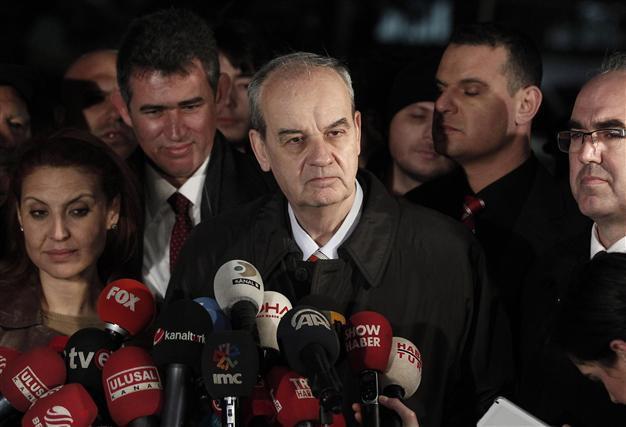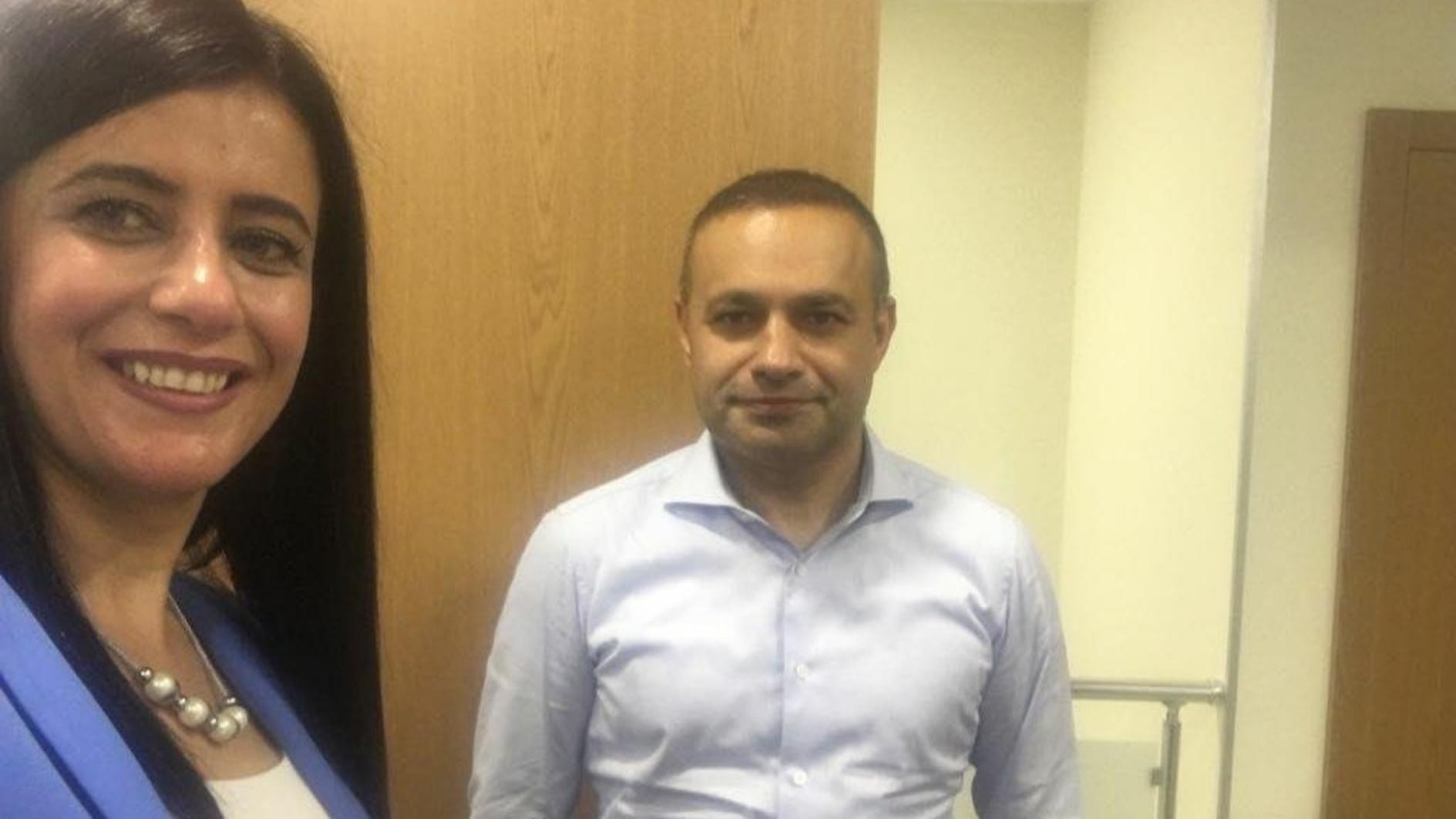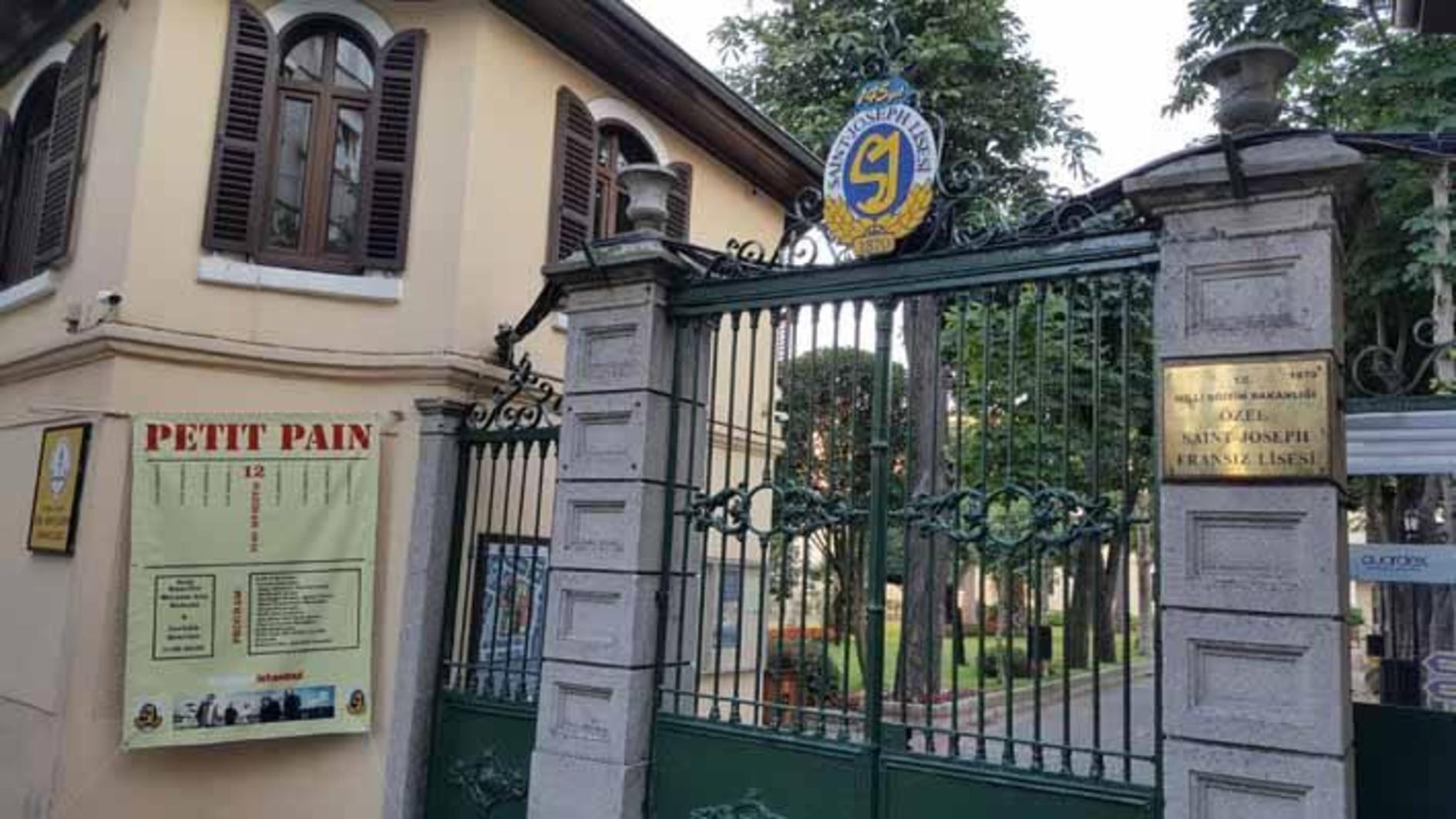Ergenekon targeted successive governments, court says in detailed ruling
ISTANBUL

Most of the imprisoned suspects, including former Chief of General Staff Gen. İlker Başbuğ, were realesed after a top court ruling stating that the delay in the release of the detailed ruling was 'a violation of rights.'
A long-awaited detailed ruling to the marathon Ergenekon trial was issued Apr. 3, nearly eight months after the verdict by the Istanbul 13th Court of Serious Crimes, announcing the finding that the organization has targeted a long series of governments.The colossal detailed ruling, which runs 16,798 pages in three volumes, also said former Chief of General Staff Gen. İlker Başbuğ was not a “terrorist,” but a “terror suspect,” adding that that definition also implied a political crime. Başbuğ was recently released on the grounds that keeping a suspect under detention pending an appeal without the release of the detailed ruling was a “violation of rights.”
Among the points emphasized by the court was that the verdict was the “first judicial ruling on the deep state.” “It has been understood that the Ergenekon organization was established within the Turkish Armed Forces under the name of ‘headquarter houses,’” the court said in the ruling.
The court also said the Ergenekon organization not only targeted the government under Prime Minister Recep Tayyip Erdoğan, but also his predecessors, Abdullah Gül – who led the government in the early 2000s during a transitional period until a political ban on Erdoğan was lifted – and Bülent Ecevit. The late leader of the Democratic Left Party (DSP), who served as prime minister during a coalition government with the Motherland Party (ANAP) and the Nationalist Movement Party (MHP) between 1999 and 2002, had particularly been forced “to give up his post,” according to the ruling.
The court said the AKP had been targeted with several coup plots, including those named “Sarıkız,” “Ayışığı,” “Yakamoz,” and “Eldiven,” which were conveyed by media reports throughout the investigation.
It also said the group “had been active” until 2007-2008 to prevent the election by the Parliament of a new president from the ranks of the AKP and during the trial against the party at the Constitutional Court.
The ruling also cleared one of the biggest question marks throughout the trial, the charges directed at Başbuğ, as even Erdoğan himself had criticized the notion that a former chief of staff could be accused of being a terrorist.
“According to the doctrine and the written legislation, crimes committed against constitutional order, the legislative and executive powers are included among crimes of terrorism, considering how they are committed and their serious consequences. In theory as in practice, anyone can be the suspect of any crime. Crimes of terrorism contain a political goal as well,” the detailed ruling said. The court also emphasized that the suspects did not accept the charges because they “believed that what they were intending to do was for the benefit of the nation.”
‘Complex network’
The court stated, however, that it failed to determine in detail Ergenekon’s organizational chart due to the “limited communication between different compartments.”
“It has been seen in the trial that the organization possessed a very complex network of relationships. Although some of the suspects tried and found guilty have been brought to light, it was unable to reach all of its cells. Although it is possible to make accurate comments on some of the Ergenekon units, it is apparent that it has not been possible to reach sufficient evidence regarding them,” the ruling said, urging fresh investigations.
The court also declared the trial would make a contribution to democracy, while rejecting criticism. “Some of the mistakes that can occur in any trials have been exaggerated,” it said.
Some 275 coup-plot suspects were handed sentences on Aug. 5, 2013, of hundreds of years’ imprisonment in total, with many high-ranking army members, journalists and academics given aggravated life sentences.
Lawyers criticize ruling
The lawyers of the Ergenekon suspects reacted to the pace of the court’s decision. Lawyer Celal Ülgen said it was not possible for the court to write down the reasoning of the decision in eight months given that it was more than 16,000 pages.
“The judges must have written 94 pages a day non-stop to finish 16,600 pages in 34 weeks. I think this is impossible. That should enter the Guiness Record Book,” said Ülgen. He claimed that the judges “copied and pasted” while writing the reasoning.
Another Ergenekon lawyer, Hüseyin Ersöz, said the reasoning failed to show the concrete evidence for the organizational ties between the suspects.
“The meanings of the defenses are missing in the reasoning as they cut them from their contexts and there is an attempt to show organizational ties in this way. The sentence in the reasoning saying that ‘this case will serve for the improvement of democracy’ is not a legal but a political statement,” said Ersöz.
Ruling issued a month after top court decision
The delay in the release of the detailed ruling had caused much controversy as it prevented suspects from appealing their cases to higher courts.
Following an application from Başbuğ, the Constitutional Court had on March 6 ruled that the postponement of the detailed ruling was a violation of the suspects’ rights.
Başbuğ was released the subsequent day after more than two years of imprisonment, before other prominent suspects were also freed.
Controversy had also emerged over the legal authority for the releases because the court overseeing the Ergenekon case rejected the release decisions. The Istanbul 13th Court of Serious Crimes refused to release the suspects. However, the Supreme Board of Judges and Prosecutors (HSYK) ruled that because the court was a formerly specialized court, it no longer had any authority after the Parliament passed a law abolishing their status.
















